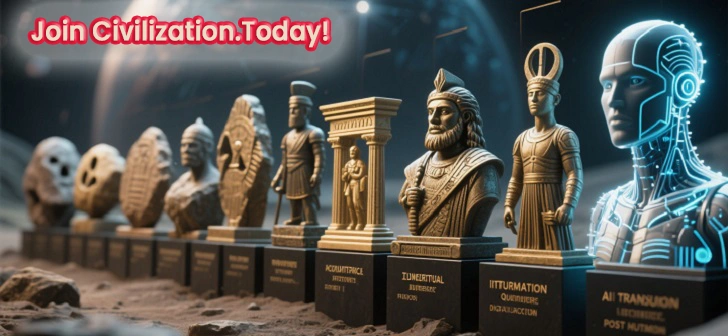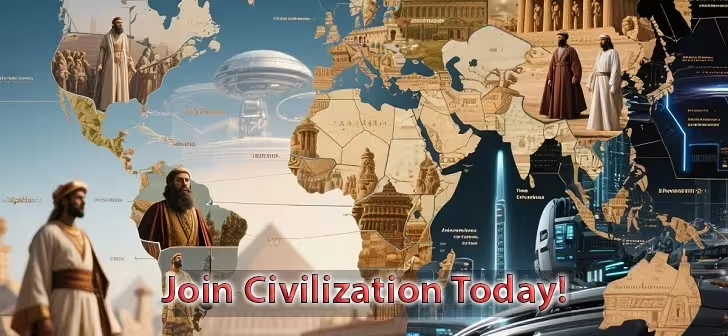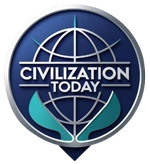In an age of rapid technological change, climate challenges, and shifting global power structures, understanding the Future of Civilization Studies is more critical than ever. This evolving academic field is no longer confined to historians, anthropologists, and sociologists—it is now a vibrant, interdisciplinary arena that blends cutting-edge science, technology, and cultural analysis to answer humanity’s most urgent question: Where are we headed?
From AI-powered historical simulations to ecological ethics and space colonization strategies, the Future of Civilization Studies is shaping the way governments, organizations, and individuals plan for the next century. Let’s explore the emerging interdisciplinary trends that are redefining the very concept of civilization.
1. The Shift from Linear History to Complex Systems Thinking
Traditional civilization studies often viewed history as a linear progression—from ancient empires to industrial revolutions and beyond. However, the Future of Civilization Studies is embracing complex systems thinking, recognizing that societies evolve in non-linear, interconnected ways.
Using tools like big data analytics and AI-driven historical modeling, researchers can now simulate how environmental changes, political instability, and cultural shifts ripple through time. This approach allows for predictive insights—helping us anticipate potential societal collapses or golden ages.
2. AI and Machine Learning as Research Partners
Artificial Intelligence is no longer just a topic within civilization studies—it is becoming a collaborator. In the Future of Civilization Studies, machine learning algorithms are used to:
- Analyze ancient texts with advanced linguistic models.
- Detect patterns in migration, trade, and conflict.
- Forecast the impact of policy decisions on global stability.
Imagine a historian working alongside an AI capable of scanning centuries of human history in seconds, offering nuanced predictions about how current events might echo the past.
3. Climate Adaptation as a Core Civilizational Metric
Civilizations have risen and fallen based on their ability to adapt to environmental challenges. Today, climate change is the ultimate stress test for humanity. The Future of Civilization Studies integrates climate science, urban resilience studies, and environmental ethics to assess how societies can survive—and thrive—in an era of ecological uncertainty.
From floating cities in flood-prone regions to AI-managed smart agriculture, the focus is shifting toward sustainability as a measure of civilizational success.
4. Space Exploration and Off-Earth Civilizations
The scope of civilization studies is no longer Earth-bound. The Future of Civilization Studies now includes astro-civilization theory—the study of how human societies might form, govern, and evolve in extraterrestrial environments.
NASA, SpaceX, and international space agencies are not just building rockets—they are exploring governance models, economic systems, and cultural norms for settlements on Mars, the Moon, and beyond. This expands the definition of civilization itself, blurring the line between terrestrial and cosmic futures.
5. Digital Anthropology and Virtual Civilizations
As more human interaction moves online, civilization is increasingly shaped by digital cultures. Virtual worlds, social media ecosystems, and blockchain-based societies are being studied as legitimate forms of civilization.
The Future of Civilization Studies treats online communities—whether they exist in the metaverse or as decentralized autonomous organizations (DAOs)—as cultural entities with their own governance, economies, and conflicts. This raises profound questions: Can a civilization exist without physical territory? Can digital nations gain the same legitimacy as traditional ones?
6. The Rise of Ethical Governance Frameworks
A recurring theme in the Future of Civilization Studies is the urgent need for ethical governance—systems that can balance technological power with human values. As AI, biotechnology, and genetic engineering advance, questions about morality, human rights, and the limits of progress become central.
Researchers are developing interdisciplinary ethical frameworks that draw from philosophy, law, sociology, and technology studies. These frameworks aim to ensure that innovation serves the collective good rather than amplifying inequality or instability.
7. Cross-Cultural Civilizational Dialogue
Globalization has made civilizations more interconnected than ever. Yet, cultural misunderstandings can still spark conflict. The Future of Civilization Studies emphasizes cross-cultural dialogue as a strategic tool for peacebuilding.
By combining comparative cultural studies with conflict resolution research, scholars are working on strategies that allow civilizations to collaborate on global challenges—from climate action to AI governance—without erasing their unique identities.
8. The Influence of Neuroscience and Human Behavior Studies
Understanding civilization requires understanding people, and that means diving deep into neuroscience and behavioral sciences. The Future of Civilization Studies uses brain research to explore how decision-making, group psychology, and cognitive biases shape political movements, economic systems, and cultural trends.
For example, by studying how fear, hope, and trust influence mass behavior, policymakers can craft strategies that guide civilizations toward cooperation rather than conflict.
9. Predictive Civilization Modeling
One of the most exciting frontiers is predictive modeling—the use of advanced simulations to explore possible futures. These models combine historical data, climate projections, technological forecasts, and even psychological insights to predict how civilizations might evolve over decades or centuries.
The Future of Civilization Studies is turning into a strategic tool for governments, corporations, and NGOs, helping them plan for long-term survival in an unpredictable world.
10. Education for Civilizational Literacy
Finally, the field is expanding into education, aiming to cultivate a generation that is literate in the dynamics of civilization. Universities are launching interdisciplinary programs that teach students to think historically, technologically, environmentally, and ethically—preparing them to make informed decisions about humanity’s path.
In the Future of Civilization Studies, civilizational literacy will be as important as digital literacy, empowering citizens to engage with global issues from an informed perspective.
Why This Matters Now
The Future of Civilization Studies is not just an academic curiosity—it is a practical necessity. As humanity faces unprecedented challenges and opportunities, understanding the forces that shape civilizations could mean the difference between a flourishing global society and a catastrophic collapse.
The fusion of disciplines—from AI to anthropology, climate science to ethics—signals a new era of knowledge, one that is proactive rather than reactive. By learning from the past, understanding the present, and anticipating the future, we can build civilizations that are resilient, just, and capable of thriving in an ever-changing universe.
Conclusion: The Blueprint for Tomorrow’s Civilizations
The Future of Civilization Studies is becoming the ultimate guidebook for humanity’s journey. It challenges us to think beyond national borders, beyond Earth, and even beyond the physical realm. It compels us to merge knowledge streams, embrace diversity, and prepare for futures that may look nothing like the past.
In the coming decades, this field will not just describe civilization—it will help design it. And in doing so, it will shape the destiny of humanity itself.




